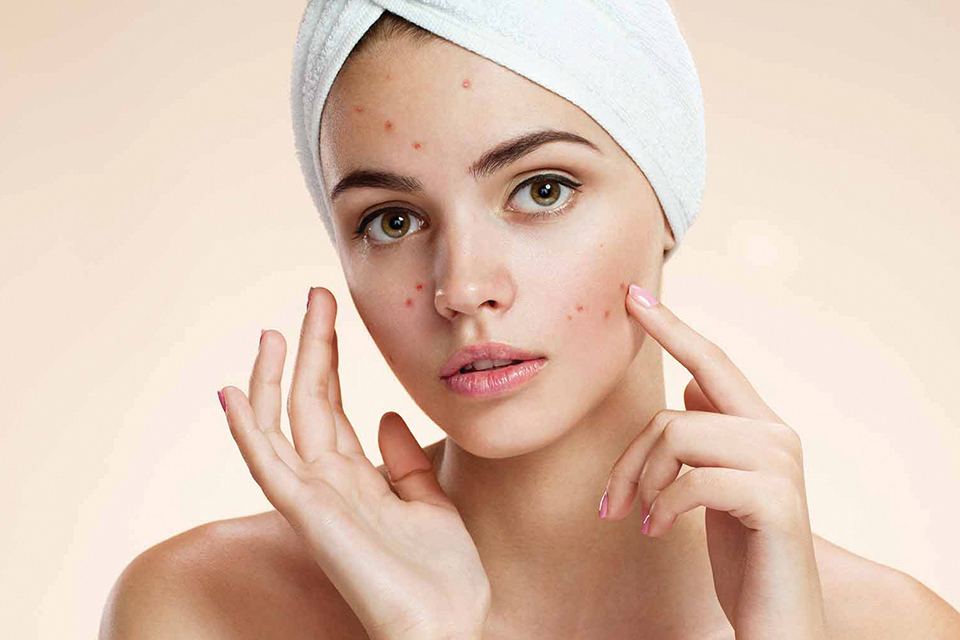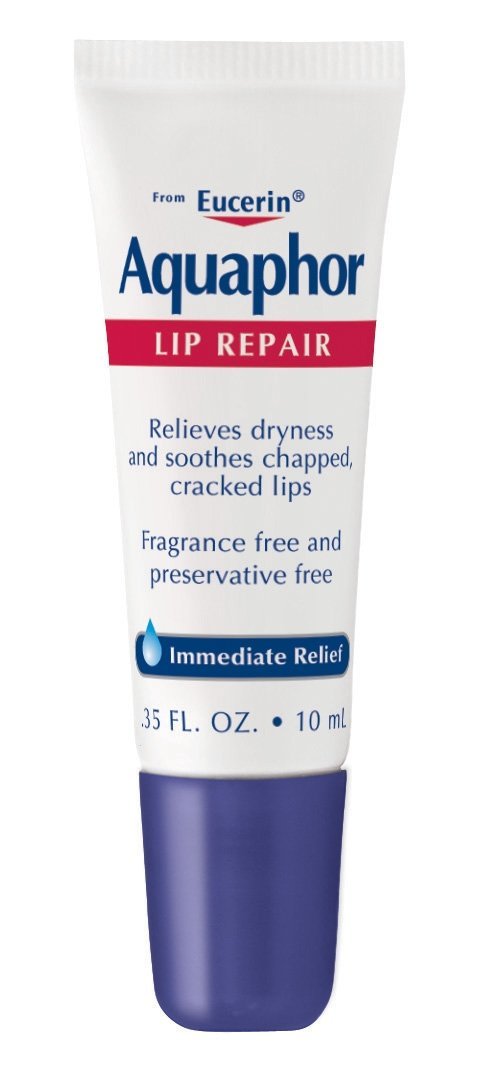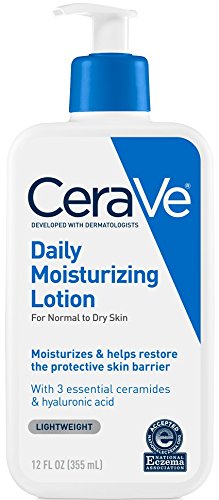Accutane: Love or Hate it?

Have you battled acne your whole life? Or has acne begun showing up now that you’ve reached your late 20s or early 30s? We know that acne can take a serious toll on overall quality of life, especially when it comes to your self-esteem. We sat down with Brianna Kay, MPAS, PA-C, Certified Physician Assistant of Westlake Dermatology to get the low-down on all things Accutane and why, for some people, it’s the godsend of all acne medications.
How do I know if I’m a candidate for Accutane?
There are two main qualifications that I look for when assessing if a patient is eligible for Accutane: recalcitrant acne and/or scarring from acne. Recalcitrant acne would include acne that is unresponsive to treatment, meaning a person has tried numerous topical and/or oral acne medications and is not able to get his or her acne under control. Recalcitrant acne can also be considered if a person is able to manage their acne with oral antibiotics, but every time they stop the antibiotics, the acne returns. Accutane is a great option for long-term management without exposing the body to extensive antibiotic treatment. Any patient that has scarring from acne, whether on the face or the body, should be discussing Accutane with their dermatologist.
What’s the standard course of treatment?
The average course of Accutane is five to six months. This can vary depending on severity of the acne, dosing of the medication, and a person's weight.
What’s required of a patient to take Accutane?
All patients are required to attend monthly visits with their dermatologist. This allows us to monitor our patients closely and safely proceed with the course of treatment. It also encourages patients to be compliant with taking the medication and to give them plenty of opportunity to discuss any concerns or questions they have about the medication. All patients are also required to have lab work drawn. The frequency of the lab work depends on the provider and ranges from twice over the course to monthly. The main things we monitor are cholesterol and liver enzymes to make sure the Accutane is being filtered properly. Female patients are also required to take a monthly pregnancy test before they can fill their prescription.
Why do you have to use two forms of birth control on Accutane?
Accutane is a known teratogen—meaning it causes severe birth defects if a woman were to become pregnant while on the medication. Because of this, it is important that you talk to your dermatologist about the best ways to prevent pregnancy while taking the medication. For female patients who are sexually active while on the medication, two forms of pregnancy prevention, such as birth control pills and condoms, are required to minimize risk. For patients who are not sexually active, they are not required to be on birth control pills or other forms of pregnancy prevention.
In your opinion, do most of your patients see positive, lasting results from Accutane?
Absolutely! To me, Accutane is a game-changer. Although there is no cure for acne, Accutane is the closest thing we have to permanently acne-free skin. Accutane causes oil glands to shrink, therefore decreasing oil production and subsequently preventing breakouts. Even after almost six years of practicing dermatology, I still get excited for my patients finishing their Accutane course. It is incredibly rewarding to go on this journey with my patients and to see the difference it makes in their lives.
What are the most common side effects?
The main side effects that are unavoidable are dry skin, chapped lips, and sun sensitivity. These side effects can be managed through a healthy skincare regimen including moisturizing daily, consistent application of chapstick, and (of course!) daily sunscreen. Less common side effects (in my experience less than 10 percent of patients) include muscle/joint aches and headaches. For a more detailed list of all possible side effects, please refer to your dermatologist.
How long does it take to see a positive impact (clearer skin)?
Most patients will see improvement within the first two months of treatment. By month three, most patients will have fewer than five pimples. And by months four to six, most patients will not have any active acne.
What does the standard timeline of treatment look like?
This is going to vary depending on the patient and their provider. For me, I like to get to know my patients and their skin for a couple months before introducing the idea of Accutane (the one exception for this would be if the patient has scarring). Once my patient and I decide that Accutane is the best option, the start date depends on a couple things. For male patients, they can start their course as soon as they have their first set of lab work drawn. For female patients, they are required to wait 30 days after the initial pregnancy test before starting the medication. Once the course is started, it takes approximately five to six months to complete.
What products do you recommend patients use while on Accutane?
Sunscreen, moisturizer, and lib balm is vital for all Accutane patients. Find Brianna’s recommendations in side panel.
What are your thoughts about psychiatric effects of the drug?
When Accutane was first approved to treat acne, it was only used for severe nodulocystic acne—which is not only incredibly painful, but also socially devastating. From the original studies, there is a link between Accutane and depression, as well as between Accutane and suicidal ideation. This is not something that should be taken lightly, and it is vital that you discuss this with your dermatologist. That being said, it is my experience with the medication that minimizes worry for me about this topic. Clinically, I have not seen a strong link between Accutane and depression. In fact, I would say that the medication has the opposite effect on most of my patients. Acne has a social impact, and it can absolutely cause a negative self image and impact social behaviors of a person suffering from breakouts. I often hear from patients, towards the end of their treatment, that they are so happy with their skin and the impact that Accutane has had on their lives. I have had numerous patients over the years tell me that they suffered from depression due to their acne and that their depression resolved after taking Accutane and clearing their skin. For those patients who do experience any type of depression, mood swings or psychiatric changes while on Accutane, please contact your provider immediately.
Can you take vitamins while on Accutane? If so, what are the recommended vitamins to take and what should one avoid?
It is important to discuss any medications that you are taking, including over the counter supplements and vitamins, with your provider. Most multivitamins are okay to continue during your Accutane course. Some of my favorite supplements for the skin that are safe to take while on Accutane are biotin and fish oil. The main vitamin to avoid while on Accutane is Vitamin A.
What is the success rate of your patients?
Although I do not keep the actual numbers, I would say that somewhere between 80 to 90 percent of patients who take a full course of Accutane will not need acne medications in the future. For the 10 to 20 percent of patients who don't continue to have clearance, their future breakouts are typically mild compared to their breakouts pre-Accutane.
Please share any warnings about serious drug or alcohol interactions while on Accutane. It is vital to speak with your provider about any medications, supplements or vitamins you’re taking, and any possible drug interactions that may occur while taking Accutane. Because Accutane is filtered through your liver, it is important that alcohol intake is minimized during your treatment course. I do not think it is realistic to ask a patient (of legal drinking age) to avoid all alcohol for five to six months. Therefore, I like to have conversations with individual patients regarding alcohol consumption. If you are of legal drinking age and planning on starting Accutane, definitely bring this up with your provider! It is important that you work as a team to figure out a safe, but realistic, plan.
Brianna’s Product Recommendations

Neutrogena Liquid Sunscreen $13
Available at your local drugstore.

Elta MD UV Daily Broad Spectrum 40 SPF $20
Available at Eltamd.com, Dermstore.com, Westlake Dermatology

SkinCeuticals Sheer Physical UV Defense 50 SPF $34
Available at SkinCeuticals.com, Dermstore.com, Westlake Dermatology

Avéne XeraCalm A.D Lipid-Replenishing Balm $33
Available at AveneUSA.com, Dermstore.com, Westlake Dermatology

Aquaphor Lip Repair $4
Available at your local drugstore.

Dr. Dan’s Cortibalm $7
Available on Amazon.com, Dermstore.com, DrDansLipbalm.com

CeraVe Daily Moisturizing Lotion $10
Available at your local drugstore.

Cetaphil $10
Available at your local drugstore.






